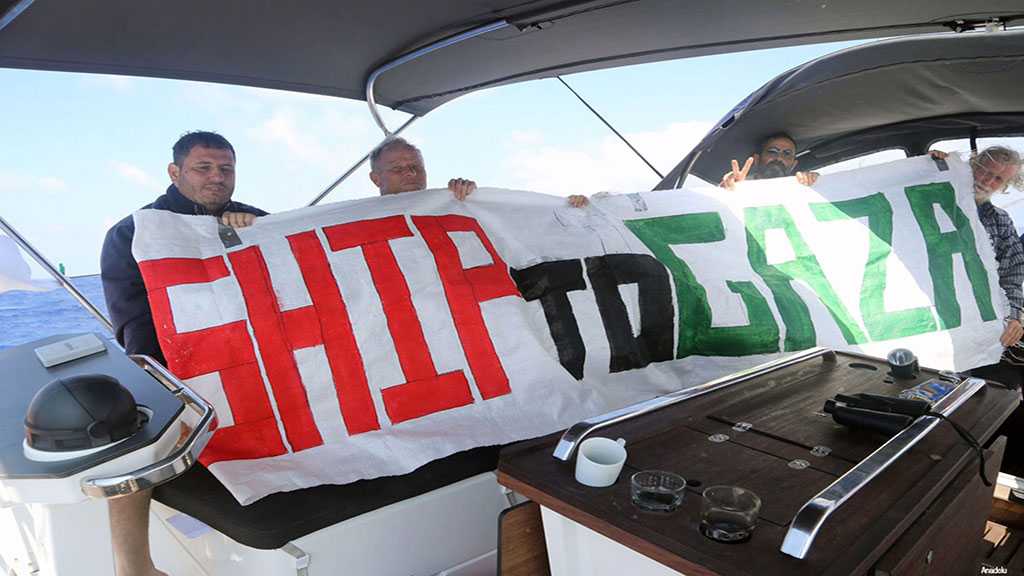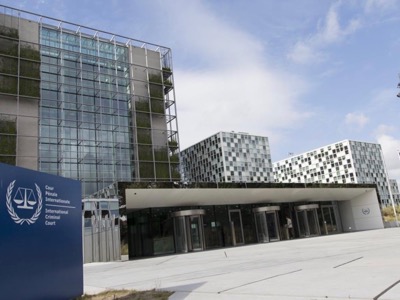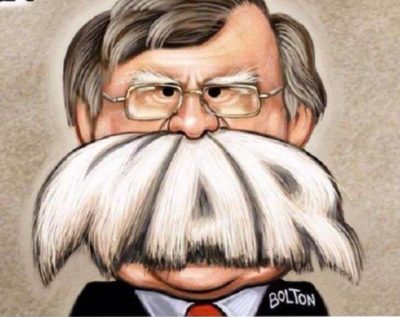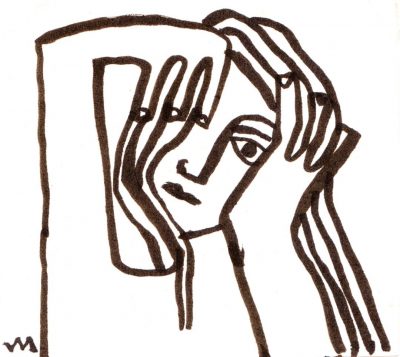By Professor Francis A Boyle

May 11, 2019 “Information Clearing House” – Assalamu’alaikum. Dr. Mahathir, Mrs. Mahathir, distinguished Excellencies, ladies and gentlemen. Little has changed in the imperialist tendencies of American foreign policy since the founding of the United States of America in seventeen eighty-nine. The fledgling United States opened the nineteenth century by stealing the continent of North America from the Indians, while in the process ethnically cleansing them and then finally deporting the pitiful few survivors by means of death marches (à la Bataan) to Bantustans, which in America we call reservations, as in instance of America’s “Manifest Destiny” to rule the world.
Then, the imperial government of the United States opened the twentieth century by stealing a colonial empire from Spain — in Cuba, Puerto Rico, Guam and the Philippines, then inflicting a near-genocidal war against the Filipino people. While at the same time, purporting to annex, the kingdom of Hawaii and subjecting the native Hawaiian people to near-genocidal conditions from which they still suffer today. All in the name of securing America’s so-called place in the sun.
And today at the dawn of the twenty first century, the world witnesses the effort by the imperial government of the United States of America to steal a hydrocarbon empire from the Moslem states and peoples, surrounding central Asia and the Persian Gulf under the pretext of fighting a war against international terrorism or eliminating weapons of mass destruction or promoting democracy, which is total nonsense.
For the past two hundred and sixteen years, the imperialist foreign policy of the United States of America since its foundation, has been predicated upon racism, aggression, ethnic cleansing, crimes against humanity, war crimes and outright genocide. At the dawn of the third millennium of humankind’s parlous existence, nothing has changed about the operational dynamics of American imperial policy. And we see this today in Afghanistan, Iraq, Palestine and what appears to be an illegal attack upon Iran.
Now the assigned topic today is The Middle East Agenda : Oil, Dollar Hegemony and Islam. So, I’m only going to limit my comments to that subject. We have to begin the story with the Arab oil embargo in 1973. As you know in 1967, Israel launched an illegal war of aggression against the surrounding Arab states, stole their land and ethnically cleansed their people. But eventually Egypt offered a Peace Treaty to Israel, which Israel rejected and the Egyptians and the Arab states decided then to use force to recover their lands.
Israel almost collapsed, the United States and Europe came to their support by providing weapons and in reaction the Arab states imposed an oil embargo on the United States and Europe, and brought their economies to their knees. Whereupon, the then U.S Secretary of State, Henry Kissinger threatened them and said: This will never happen again, and if you do, we will prevent it. And it was not just a threat. The United States government then at that time, planned, prepared and conspired, to steal the oil of the Persian Gulf. They did not have the military capability to do this at that time, to carry out the Kissinger threat, which was also then repeated by the Ford administration, and the Carter administration under Harold Brown and Zbigniew Brzezinski.
So they put into planning an interventionary force, designed expressly for the purpose of stealing Arab oil fields, and that was called the Rapid Deployment Force. And it took ten years of training, planning, positioning, and supply to build that interventionary force of that capability and eventually it was called the U.S. Central Command. The purpose of the U.S. Central Command is to steal and control and dominate the oil and gas resources of the Persian Gulf and Central Asia. And that’s exactly what the U.S. Central Command proceeded to do in the Bush Sr. war against Iraq, their first military expedition.
And as we know, that war exterminated probably two hundred thousand Iraqis. Half of them innocent civilians. Simply wiped out in a bombing campaign and a military expedition of unprecedented dimensions. But remember, it took fifteen years for the Pentagon and three different administrations both Republicans and Democrats to get the capability to do this. And then, when that genocide or conflict was over, what happened? The United States carved Iraq up into three pieces with their air force, the so-called no-fly zones, a zone for the Kurds in the North, a zone for the Shi’ah in the South, and the Sunni in the middle. Why? To destroy Iraq as an effectively viable state.
In his book, Clash of Civilizations, Huntington from Harvard who advised the Pentagon and advised the State Department pointed out that the only Arab state with the capability to lead the Arab world and challenge the United States and Israel was Iraq. And so Iraq had to be destroyed, to maintain the domination of the United States and its proxy, Israel. And remember after 1973, whatever it was before then, Israel is nothing more than a catspaw of the United States. They do what America tells them to do! Otherwise Israel is nothing more than a failed state.
In addition then, to destroying Iraq as a state, carving it up into three pieces, was the decision to debilitate and destroy the Iraqi people. And so they continued the genocidal economic sanctions on the people of Iraq, that my colleagues, Denis Halliday, Hans Von Sponeck, so courageously resisted and finally resigned from the United Nations as a matter of principle, calling them by what they really were: genocide. The United States and Britain maliciously and criminally imposed genocidal sanctions on the people of Iraq, that killed approximately 1.5 million Iraqis, all of whom were innocent civilians.
And when U.S. Ambassador to the United Nations and later Secretary of State Madeleine Albright was asked about the five hundred thousand dead children, she said that she thought the price was worth it. Now, I could have taken that statement to the International Court of Justice, and filed it against the United States as evidence of genocidal intent against the people of Iraq in violation of the 1948 Genocide Convention. And indeed I offered to do so to the then President of Iraq, but for whatever reasons he decided not to take these claims to the International Court of Justice.
And now, as you see, he is on trial in a total kangaroo court proceeding in Baghdad that is completely controlled and dominated by the United States government. So, 1.5 million Iraqis died as the result of these genocidal sanctions. And then came September 11. And we know for a fact that the Bush Jr. administration knew that a major terrorist attack was going to be launched on the United States. And they let it happen anyway deliberately and on purpose. Why? They wanted a pretext for war. And not just one war but for a long war which they are talking about today.
Indeed, from my research the war plans drawn up by the Pentagon for the war against Afghanistan were formulated as early as 1997.Enormous military forces fielded by that same U.S. Central Command, were already in and around and surrounding the Persian Gulf and the Indian Ocean before September 11. This war had been long-planned against Afghanistan. And armed, equipped, supplied, trained and war-gamed and ready to go. They just needed the pretext and that was September 11. Why? The United States wanted access to the oil and natural gas of Central Asia.
That had been a Pentagon objective since at least before the collapse of the Soviet Union in 1991. And the 9/11 attack gave them the pretext to make this major grab for the oil and gas of Central Asia. And they are there today with their bases, with their troops, in the surrounding countries in Central Asia. And of course in the process, obliterated, we don’t even have an estimate of the Muslims in Afghanistan who were killed in the air bombardment, twenty, twenty five thousand, maybe more, and tens of thousands of others starved to death and still suffering today.
But that, as we know from all the records was only the first step in the process. They wanted to finish the job in Iraq. And so immediately after September 11, Bush ordered Rumsfeld to update and operationalize the plans for attacking and invading Iraq. It had nothing at all to do with weapons of mass destruction. We in the peace movement in America had been saying that all along. The United Nations had determined there were no weapons of mass destruction in Iraq. These were lies designed to scaremonger the American people and Congress into supporting an illegal war of aggression, a Nuremberg crime against peace, against Iraq. And they told whatever lies and broke what international laws they had to break in order to attack Iraq.
And today the estimate, again we don’t know. Perhaps two hundred thousand people in Iraq had been killed outright by the United States, Britain, their allies, in Iraq. And again, most of them civilians. Clearly if you add up what United States government has done to Iraq from August of 1990, when it imposed the genocidal economic embargo until today. The United States and Britain have inflicted outright genocide on the Muslim and Christian people of Iraq and they are predominately Muslim as we know.
Now comes the third step in the Pentagon’s pre-existing plan, to control and dominate the oil and gas resources of the Persian Gulf and Central Asia. It sounds a bit like the plan that Hitler and the Nazis had in the 1930s. Does it not? First go into Austria, then go into Czechoslovakia, then go into Poland. So first Afghanistan, then Iraq, and now Iran. Iran is going to be the next victim of these outright criminals unless you and I can stop them.
Right now there are three aircraft carrier task forces in the Persian Gulf. And whenever they had put three aircraft carrier task forces over there, it’s always to prepare for an attack. And according to Seymour Hersch, the award winning journalist, it will probably be an aerial bombardment, along the lines of what they did to Yugoslavia in 1999. As you remember there, seventy eight days of aerial bombardment by the United States and NATO with no authorization from the Security Council. Clearly illegal. Killing again, we don’t know the exact number outright, four to five thousand innocent civilians. And targeting civilian infrastructure, all up and down, from which the people still suffer today. The use of depleted uranium ammunitions, with consequent outbreaks of cancer are documented today.
So this is what, is being planned right now as we speak; an attack upon Iran. Using jet fighter aircraft, fighter bombers, on these three aircraft carrier task forces, using cruise missiles on submarines. Of course Israel will be involved and have a role to play, doing exactly what the Americans tell them to do. In addition, it appears that if they attack Iran, they will also attack Syria. Yesterday, if you heard President Bush’s press conference in Vienna, he threatened Syria, right? There’s no other word for it. He threatened Syria.
These Neo-Conservatives want to take out Syria as a favour to Israel. Remember, many of these Neo-Conservatives are affiliated personally and professionally with the Likhud Party in Israel and Ariel Sharon, the Butcher of Beirut, the man who exterminated twenty thousand Arabs in Lebanon, most of them, not all of them were Muslims. And in addition, slaughtered two thousand completely innocent Palestinian women, children and old men at Sabra and Shatila. Ariel Sharon, the man who went to Haram Al-Sharif, the third holiest site in Islam, where Muhammad, (Peace Be Upon Him) ascended into heaven, and desecrated the Haram on September 28th, 2000, and deliberately provoked the start of the Al-Aqsa Intifada and has inflicted death and destruction on the Palestinian people since then. Close to thirty seven hundred Palestinians since then alone have been killed….most of them shot down like dogs in the street, and what has the Muslim world done about this?
My Palestinian friends tell me that they are worried that the government of Malaysia might recognize Israel and establish diplomatic relations with Israel. I certainly hope this is not true. We must treat the criminal apartheid regime in Israel, the same way the world treated the criminal apartheid regime in South Africa.
If the United States attacks Iran, they will probably attack Syria with the Israeli air force and they will attack Lebanon to take out the Islamic resistance movement in southern Lebanon – Hezbollah that defended the legitimate rights of Lebanon and the Lebanese people and expelled the invading longstanding occupying Israeli army that had the full support of the United States government for over twenty years.
So they could attack Iran, Syria, Southern Lebanon and inflict yet another round of ethnic cleansing on the suffering Palestinian people. Remember Sharon and Likhud believe that Jordan is Palestine. And they want to drive as many Palestinians as possible out of their homes and into Jordan.
So if the United States as reported by Hersh and other reliable sources, goes ahead and attacks Iran, we could see warfare erupt all the way from Egypt to the border with India. This whole area convulsed in warfare. And who will be the primary victims of this war? Muslims. The United States could not care less about Muslim life. Look at the demonisation and victimisation of Muslims that we have seen inflicted by the United States and its surrogate, Israel. Look at Guantanamo, where six hundred Muslim men have been treated like dogs in a kennel. Pretty much the way the Nazis treated the Jews. Look at Abu Ghraib and the sadism and sexual exploitation and perversion of Muslims by their American captors. And the same thing has been done in Baghram in Afghanistan. And when Professor Sharif Bassiouni, the U.N. special rapporteur filed the Report with the Security Council against U.S. practices in Afghanistan, the Americans had Kofi Annan fire him. Just as they had Kofi Annan fire Mary Robinson, the U.N. high commissioner for human rights, when she protested what was going on down in Guantanamo.
The United States could not care less about Muslim life. And the same is true for the genocidal apartheid regime in Israel. They would be happy to use nuclear weapons against Iran. They would be happy to break the taboo of Hiroshima and Nagasaki against Muslims in Iran. It would create no problem at all for them. Indeed, I went to school with these Neo-Conservatives at the University of Chicago. Wolfowitz was there, Chalabi, Khalilzad, Shulsky, all the rest of them. I went through the exact same programme. Their mentor, Professor Leo Strauss. And who was his teacher in Germany and his sponsor? Professor Carl Schmitt who went on to become the most notorious Nazi law Professor of his day, justifying every atrocity that the Nazis inflicted on everyone. We must understand that these Neo-Conservatives are in fact Neo-Nazis. They have espoused the Nazi doctrine of Schmitt and Strauss and Machiavelli and Nietzsche, the “superman.” They are the supermen, and the Muslims are the scum of the earth.
Now, I do not believe the United States will initially start bombing Iran with nuclear weapons. But if things get out of control they are fully prepared to use tactical nuclear weapons. And here in our materials, you have the Pentagon’s Joint Publication 3-12, which you can get on the internet…. just do a Google search and read it. And you will see there dated March 15, 2005; nuclear, tactical nuclear weapons have been fully integrated into United States conventional forces.
So if Iran were to defend itself, human wave attacks, whatever, they will be happy to use nuclear weapons, tactical nuclear weapons against Iran. Remember, these Neo-Nazis, Neo-Cons want to break the taboo of Hiroshima and Nagasaki. They want to use tactical nuclear weapons, to be able to say to the rest of the world, you do what we tell you to do or else look what we did to the Iranians!
It’s a very serious situation. And this could even get further out of control. Remember that before Bush invaded Iraq, President Putin of Russia said that if he invades Iraq he could set off World War Three. Well, I interpreted that as an implicit threat. Even the famous American news broadcaster Walter Cronkite said that if Bush invaded Iraq he could set off World War Three. Two weeks ago we had the meeting of the Shanghai Cooperation Organization; China, Russia and Iran. So again, if Bush were to attack Iran, he very well could set off a Third World War, a nuclear war. And that is where you come in:
“This is what I can do. These are my talents. These are my professional qualifications. These are my skills. This is my cheque book. Let me help. Let me prevent, let me help prevent a nuclear war, a possible final, cataclysmic Third World War.”
Thank you, shukran.
ARAB STRATEGY FORUM: Political Systems in the Arab World in 2020:
Moving Towards Reform and Development
by Professor Francis A. Boyle
IN THE NAME OF GOD, THE COMPASSIONATE, THE MERCIFUL
Your Royal Highnesses, Distinguished Excellencies, Ladies and Gentlemen.
The demand by the Bush Jr. administration and its Zionist neo-conservative operatives for democratization in the Arab world is a joke and a fraud that is designed to pressure, undermine, and destabilize Arab governments and states at the behest of the genocidal Israeli apartheid regime, and to pursue America’s continuing campaign for outright military control and domination of the Gulf oil and gas resources that the United States government launched in direct reaction to the Arab oil embargo of the West in 1973. For over the past three decades American foreign policy toward the entire Middle East has been determined by oil and Israel, in that order.
The United States government will seek direct military control and domination of the hydrocarbon resources of the Arab and Muslim world until there is no oil and gas left for them to steal, using Israel as its regional “policeman” towards that end. Oil and Israel were behind both the Bush Sr. and Bush Jr. wars against Iraq. And now Bush Jr. is threatening to attack Syria, Lebanon, and Iran in conjunction with the genocidal apartheid regime in Israel. As the oil and gas in the Arab and Muslim world proceed to run out, the United States and Israel will become even more predatory, aggressive, destructive, and genocidal toward Arab and Muslim states and peoples.
The Bush Jr. administration and its Zionist neo-conservative operatives could not care less about democracy in the Arab world. In fact, Bush Jr. and his Neo-Cons are all trying very hard to build a Police State in the United States of America that we lawyers are vigorously opposing. What the Bush Jr. administration and its Zionist neo-conservative operatives really want in the Arab world are quisling dictators who will do their dirty work for them and the genocidal Israeli apartheid regime against the wishes and prayers of the Arab people for democracy, human rights, the rule of law, constitutionalism, as well as for the liberation of Palestine and Al Quds.
Those will be the predominant facts and trends that the Arab world will have to confront between now and 2020. It was not my assignment here today to advise Arab states and the Arab people how to counteract this anti-Arab and anti-Muslim agenda by the United States and Israel. But certainly the sacred Koran and the divinely inspired teachings of the Prophet Mohammed – May Peace and Blessings Be Upon Him! – shall guide you and protect you during this most difficult period in the history of the Arab Nation, the Arab People, Arab States, and Islam.
Shukhran.
Professor Francis A. Boyle is an international law expert and served as Legal Advisor to the Palestine Liberation Organization and Yasser Arafat on the 1988 Palestinian Declaration of Independence, as well as to the Palestinian Delegation to the Middle East Peace Negotiations from 1991 to 1993, where he drafted the Palestinian counter-offer to the now defunct Oslo Agreement. His books include “ Palestine, Palestinians and International Law” (2003), and “ The Palestinian Right of Return under International Law” (2010).
The views expressed in this article are solely those of the author and do not necessarily reflect the opinions of Information Clearing House.
Filed under: Afghanistan, American Aggression, Bloody Oil, Gulf Cooperation Council (GCC), ICC, IRAQ, Israeli Brutal Aggression, Palestine, Racism, US Foreign Policy, USA, War on Iran, War on Syria | Tagged: 9/11, American Aggression, AngloZionist Empire, Ariel Sharon, CLASH OF CIVILIZATIONS, Ethnic Cleansing, Israeli Brutal Aggression, Kissinger, land theft, Madeleine Albright, Neocons, sanctions | Comments Off on The Middle East Agenda: Oil, Dollar Hegemony & Islam in Imperialism







 On April 29th Governor DeSantis and the Florida Cabinet met in Jerusalem (
On April 29th Governor DeSantis and the Florida Cabinet met in Jerusalem (



 Israel renewed administrative detention of Khalida Jarrar. (Photo: via MEMO)
Israel renewed administrative detention of Khalida Jarrar. (Photo: via MEMO)






 International Criminal Court (ICC) chief prosecutor Fatou Bensouda (C) is seen at the ICC courtroom in The Hague, the Netherlands, on August 28, 2018. (Photo by AFP)
International Criminal Court (ICC) chief prosecutor Fatou Bensouda (C) is seen at the ICC courtroom in The Hague, the Netherlands, on August 28, 2018. (Photo by AFP)


